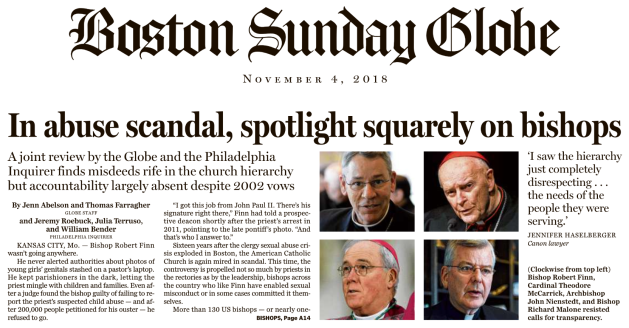
Photo (cc) 2004 by Cool Hand Luke.
Previously published at WGBHNews.org.
A little gallows humor seems like an appropriate way to greet the news that The Salt Lake Tribune — the largest daily newspaper in Utah — will seek permission from the IRS to become a nonprofit entity. So cue the snare drum:
Q: What’s the difference between a for-profit newspaper and a nonprofit newspaper?
A: A nonprofit newspaper might actually be able to figure out a way to make money.
But hold the snark. Because even though nonprofit status would not relieve the Tribune of the obligation to figure out a way to pay for the journalism it provides, this might be the most hopeful step in newspaper ownership since The Philadelphia Inquirer and its sister properties were donated to a nonprofit foundation in 2016.
The Salt Lake plan would actually take the Philadelphia model one giant step further. The Inquirer remains a for-profit paper even though its owner, the Lenfest Institute for Journalism, is a nonprofit organization. What the owners in Salt Lake hope to do is reorganize the Tribune itself as a nonprofit, enabling it to raise money in the form of tax-exempt contributions from large foundations as well as from (to borrow a phrase) readers like you.
“The Tribune is a vital community asset and should be owned by the community,” said publisher Paul Huntsman, the brother of former ambassador and presidential candidate Jon Huntsman.
The slide at daily newspapers everywhere has been precipitous, but it’s been especially acute at the Tribune. The newsroom has plunged from 148 full-time employees in 2011 to about 60 today. (Huntsman bought the paper in 2016 and eliminated more than 30 positions a year ago.) Print circulation, according to the Nieman Lab, fell from 85,000 in 2014 to just 31,000 in 2018.
The situation in Salt Lake City is complicated by the Tribune’s joint operating agreement with a second daily, the Deseret News, which is owned by the Church of Jesus Christ of Latter-day Saints. That agreement expires in a year. So it will take a while for the dust to settle.
Despite the success of our three national papers, The New York Times, The Washington Post, and The Wall Street Journal, in charging for digital subscriptions, the outlook remains dire at the regional level. Although Boston Globe owner John Henry surprised everyone last December when he said his paper had achieved profitability, the Globe’s financial situation is still murky. Elsewhere it’s Armageddon. As The Wall Street Journal put it in a recent examination of local newspapers: “A stark divide has emerged between a handful of national players that have managed to stabilize their businesses and local outlets for which time is running out.”
As the advertising revenues that traditionally subsidized journalism have dwindled, newspapers are looking more and more like what economists refer to as a “public good” — that is, a service that benefits all of us whether we pay for it or not. The fire department is a classic example of a public good because we all need it, yet few of us would pay for it voluntarily. That’s what taxes are for. But what do we do about a newspaper whose exposé of corruption in city hall, for example, benefits “free riders” who don’t pay as well as those who do?
That’s where the nonprofit model comes in. At its best, nonprofit ownership can break the reliance on revenue from advertisers and readers by getting others to pay for it.
Take, for instance, the New Haven Independent, a nonprofit, online-only news service that has received considerable support from the Community Foundation for Greater New Haven since the Independent’s founding in 2005.
“My view is that one of the things that connects people is a common base of information about what’s going on in this place. That it’s actually a very powerful connector,” the foundation’s president and chief executive officer, Will Ginsberg, said in an interview for my 2013 book “The Wired City.” “And it’s therefore a very powerful ingredient in creating a sense of community.”
From the moment that the internet began undermining the economics of journalism, the paramount question for newspapers has been: Who will pay? If The Salt Lake Tribune is successful in winning IRS approval, we’ll have a chance to see if civic-minded foundation leaders and philanthropists might be one answer. It’s already working at smaller projects such as the New Haven Independent and at public broadcasting operations. It’s worth finding out if it might work for large regional newspapers as well.




